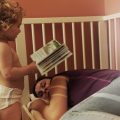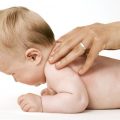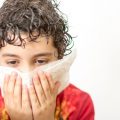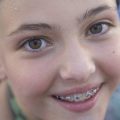For the past year I have been breastfeeding a baby, and it has arrivedtime to share my experience. Adjusting breastfeeding - it turned out to be very difficult for me. I got milk in five days. I didn’t know that this could take so much time and what it is - milk flow (no one explained this to me). I was the only mother in the puerperal ward who was breastfeeding. One of the women also tried, but after 12 hours she began to give the baby a mixture, because she “had no milk” (nobody told her about the milk flow either). While the rest of the children slept with their full tummies, my son shouted and cried, hanging on my chest all night (frequent attachment? What is it? Nobody told me about it). When I returned home, other problems started: my nipple literally cracked in half. I never felt such pain before. I was afraid of every feeding, but continued to feed the baby - in tears, with sobs, until everything healed (no one told me that breastfeeding can be painful, no one taught me how a baby should breastfeed).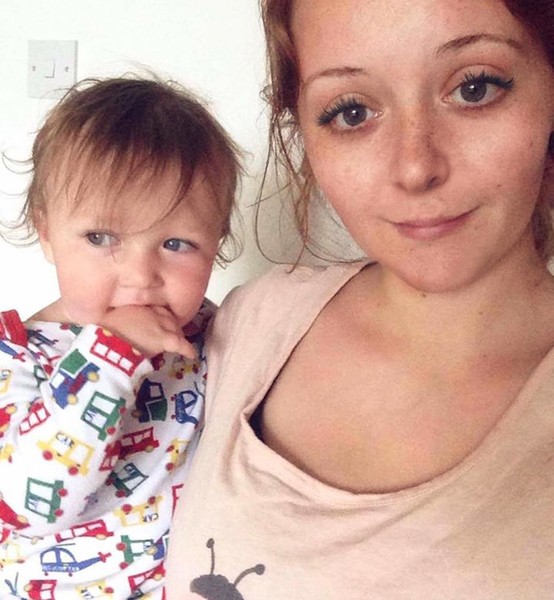 A photo: @ mamaclogWhen I was faced with the need to feed the child outside the house, I either locked myself in the toilet, or rushed home, or took with me the expressed milk in a bottle. I was embarrassed to feed on people, did not want to cause inconvenience to anyone. This led to blockage of ducts and stagnation. (Now I calmly feed in public. To hell with this backward society!) Then I started to have mastitis. I remember how I woke up at 3 o'clock in the morning, shaking from the cold, put on a robe, wrapped myself in a blanket and tried to feed my son. Pain. It was painfully painful. I was trembling and sweating, while feeling as though I was frozen to the bone. At 5 am I woke up my boyfriend and said that I needed to go to the hospital. My stepfather came, he was a doctor, he measured my temperature, said that she was a little tall, he advised paracetamol and tried to sleep. I couldn’t hesitate. By seven in the morning I started vomiting. The temperature was again measured - 40. I developed sepsis overnight. It happened because I couldn’t recognize the early symptoms of mastitis (for example, I didn’t see any reddening on my chest). I was put into intensive care, injected morphine, given anti-emetic and the strongest antibiotics that we had. I had to leave the child for two nights. My heart was broken.
A photo: @ mamaclogWhen I was faced with the need to feed the child outside the house, I either locked myself in the toilet, or rushed home, or took with me the expressed milk in a bottle. I was embarrassed to feed on people, did not want to cause inconvenience to anyone. This led to blockage of ducts and stagnation. (Now I calmly feed in public. To hell with this backward society!) Then I started to have mastitis. I remember how I woke up at 3 o'clock in the morning, shaking from the cold, put on a robe, wrapped myself in a blanket and tried to feed my son. Pain. It was painfully painful. I was trembling and sweating, while feeling as though I was frozen to the bone. At 5 am I woke up my boyfriend and said that I needed to go to the hospital. My stepfather came, he was a doctor, he measured my temperature, said that she was a little tall, he advised paracetamol and tried to sleep. I couldn’t hesitate. By seven in the morning I started vomiting. The temperature was again measured - 40. I developed sepsis overnight. It happened because I couldn’t recognize the early symptoms of mastitis (for example, I didn’t see any reddening on my chest). I was put into intensive care, injected morphine, given anti-emetic and the strongest antibiotics that we had. I had to leave the child for two nights. My heart was broken.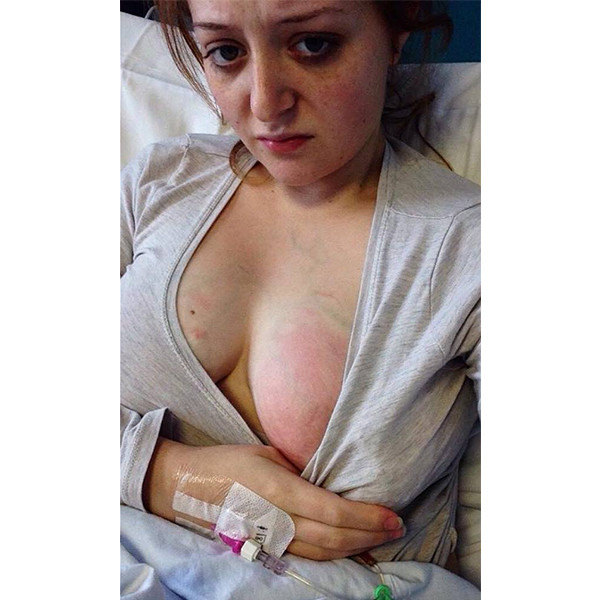 Photo:@mamaclogWhile I was in hospital, I asked for a breast pump several times because if I didn't express, my mastitis would get worse (and it did). The nurses said they didn't have one because there weren't that many breastfeeding mothers on the ward. My story doesn't end there, but the main point I want to make is that women know shockingly little about breastfeeding. I don't mean information about the benefits of breastfeeding, or handing out leaflets. I'm talking about general knowledge, the basics of breastfeeding, frequent latching, problems that can arise and what to do about them, how to spot them and how to fix them. The advent of formula has broken the cycle of knowledge transfer from generation to generation. I know that formula saves lives and is necessary. But in the past, we had mothers, grandmothers, sisters, aunts and friends who were willing to share their knowledge and experience. But now many mothers and grandmothers have nothing to share because they have never breastfed. There is no knowledge, no experience, women are forced to establish lactation on their own, so now many breastfeeding stories end before they have even begun. The health care system and society as a whole do not support nursing mothers. There are those who aggressively preach breastfeeding, but do not provide any real support. Breastfeeding is hard work, it needs to be taught, and it needs to be studied. We walk, talk, read and write - it seems natural, but it is not always so, we learn it. If I knew in advance everything I know now, it would be much easier. If young mothers knew how many difficulties they would face, they would study breastfeeding before giving birth, go to courses, read books, ask questions on forums. But we just think that it will be as natural as breathing. Because no one told us that it is not. It is also useful to know:
Photo:@mamaclogWhile I was in hospital, I asked for a breast pump several times because if I didn't express, my mastitis would get worse (and it did). The nurses said they didn't have one because there weren't that many breastfeeding mothers on the ward. My story doesn't end there, but the main point I want to make is that women know shockingly little about breastfeeding. I don't mean information about the benefits of breastfeeding, or handing out leaflets. I'm talking about general knowledge, the basics of breastfeeding, frequent latching, problems that can arise and what to do about them, how to spot them and how to fix them. The advent of formula has broken the cycle of knowledge transfer from generation to generation. I know that formula saves lives and is necessary. But in the past, we had mothers, grandmothers, sisters, aunts and friends who were willing to share their knowledge and experience. But now many mothers and grandmothers have nothing to share because they have never breastfed. There is no knowledge, no experience, women are forced to establish lactation on their own, so now many breastfeeding stories end before they have even begun. The health care system and society as a whole do not support nursing mothers. There are those who aggressively preach breastfeeding, but do not provide any real support. Breastfeeding is hard work, it needs to be taught, and it needs to be studied. We walk, talk, read and write - it seems natural, but it is not always so, we learn it. If I knew in advance everything I know now, it would be much easier. If young mothers knew how many difficulties they would face, they would study breastfeeding before giving birth, go to courses, read books, ask questions on forums. But we just think that it will be as natural as breathing. Because no one told us that it is not. It is also useful to know:

Making Money with Desserts: Success Stories
Evgeniya Polischuk (Fedutinova) instagram:@evgeniyafedutinovavk.com/janeshomebaking– It all started with baking for family and friends. Gradually, I started posting photos of my baked goods on Instagram – and orders started coming in. I made my first custom-made cake on October 13, 2014, and a little earlier I started making macaroons and cupcakes. You could say that the business “found me”, I am very […]

Soups are cold recipes with photos
Cold cucumber soup with yogurt and lemonsorbet from the chef of the restaurant La Taverna Alexander Zhurkin Photo: Getty Images Ingredients: Plain yoghurt – 125 g Cucumber – 150 g Lemon/lime sorbet – 50 g Cocktail shrimp – 24 g Fresh ginger juice – 1 g Lime juice – 5 g Fresh orange juice – 5 g Parsley – 1 g Pink pepper – 1 g Watercress – […]

barbeque kebab
Pork tenderloin in glaze Photo:Dmitry Bayrak/dbstudioPreparation time: 20 minutes + marinating time.Calories: 454 kcal per serving.For 4 servings: 4 pork tenderloins (approximately 300 g each), 1 onion, 2 cloves of garlic, 1 tsp. lemon zest, 1 tsp. lemon juice, a pinch of ground cumin, coriander and turmeric, 1 tbsp. vegetable […]

Pierre Duacan: dietary recipes: Ducane diet
Beetroot soup Photo:Season’S, Luxury Hotels RepresentationYou will need:· Boiled beetroot – 60 g· Fresh cucumbers – 20 g· Red radish – 20 g· Green onions – 10 g· Egg – 1 pc.· Drinking mineral water – 200 g· Salt – 1 gPreparation:· Boil the egg and beetroot.· Grate the cucumbers, radish and part of the beetroot. Put everything […]
